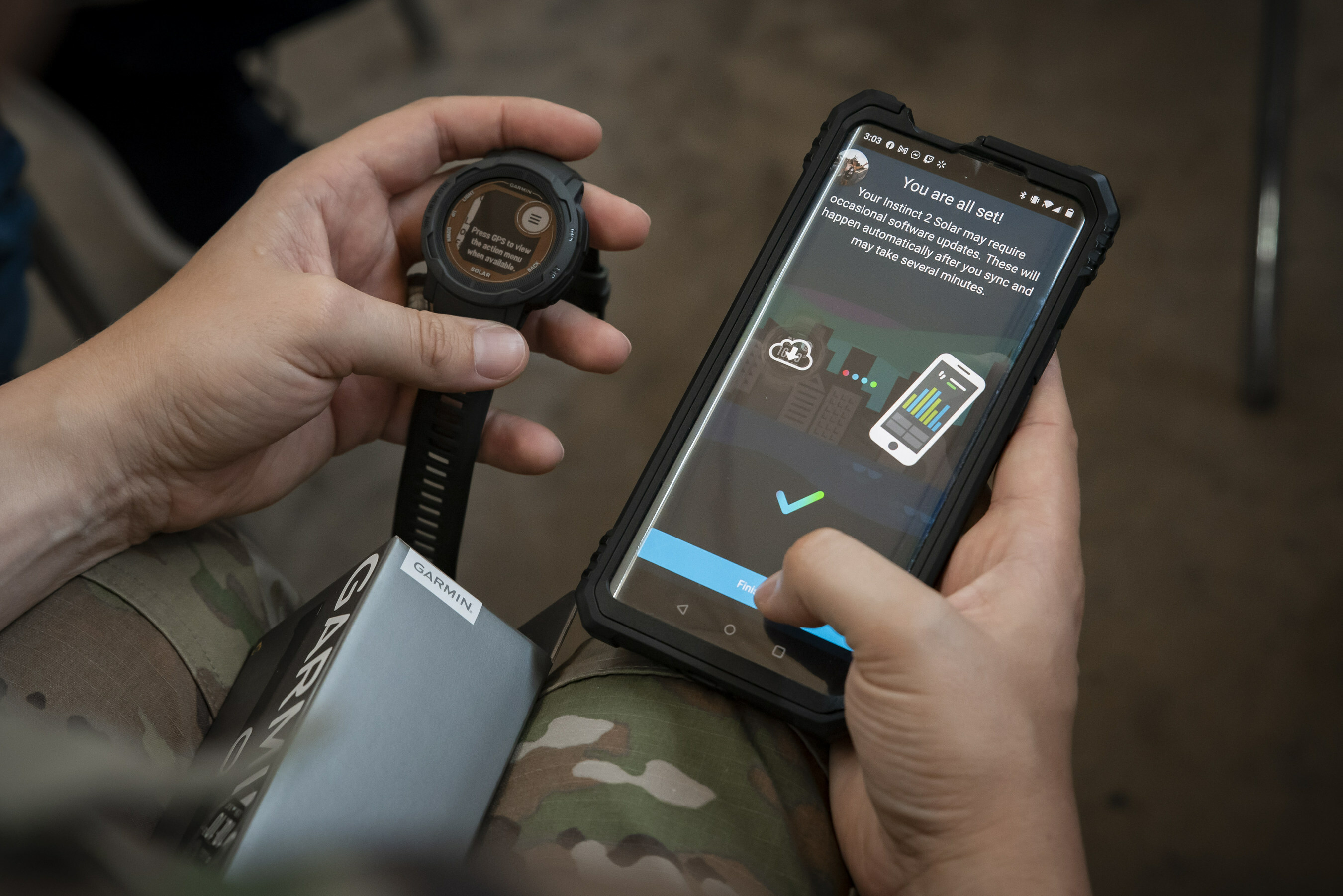
Garmin smartwatches are being deployed by the thousands to help assess the physical fitness of U.S. Space Force Guardians, the company announced yesterday. Commissioned by the Air Force Research Laboratory (AFRL), the two-year study will explore the effectiveness of smartwatch technology to supplant annual physical fitness assessments.
“Garmin is gratified to be part of this exciting research effort that will help ensure Space Force Guardians are physically prepared to perform their duties. The accurate health metrics and exceptional battery life of our smartwatches will provide a reliable snapshot of a Guardian’s physical readiness, potentially saving the U.S. Military time and money.” — Scott Burgett, Senior Director of Garmin Health Engineering
Guardians who actively participate in the study will be exempt from U.S. Air Force physical fitness assessments. Enrollment has been robust, with over two-thirds of the 8,400-strong Space Force signing up since the program was announced in May. To date, more than 6,000 Garmin smartwatches have been or will be issued to active military members who have agreed to log workouts and complete monthly surveys provided by AFRL, and a second wave of enrollment is expected to begin in October.
“By tracking two basic metrics—cardiorespiratory fitness and physical activity—we can quickly verify that a Guardian has met their physical requirements and is ready for duty,” said Dr. James Christensen, a product line lead with AFRL’s 711th Human Performance Wing. “We hope that continuous fitness assessment, implemented via wearable technology, will promote a higher, more consistent level of fitness across the force with expected outcomes like reduced injury and stress, improved resilience and higher overall operational performance.”
Garmin Instinct 2 Solar and Forerunner 55 smartwatches were chosen for the U.S. Space Force’s Continuous Fitness Assessment (CFA) project because they offer abundant battery life, high-quality biometric data and the ability to disable GPS functionality. Further, the Garmin Health API and secure data collection practices are compliant with federal privacy and cybersecurity standards for software, sensors and data encryption.
“We were pleased that the Garmin wearable ecosystem went through a rigorous U.S. Air Force cybersecurity and privacy review,” Burgett said. “The U.S. military has high security standards, and our system is designed end-to-end to protect sensitive user data.”
The AFRL team will analyze study results to determine the effectiveness of smartwatches relative to the current physical fitness tests and advise on future efforts to make smartwatches a permanent option. If successful, the program could be adopted by other branches of the Armed Services and include broader Department of Defense requirements such as musculoskeletal injury risk.

